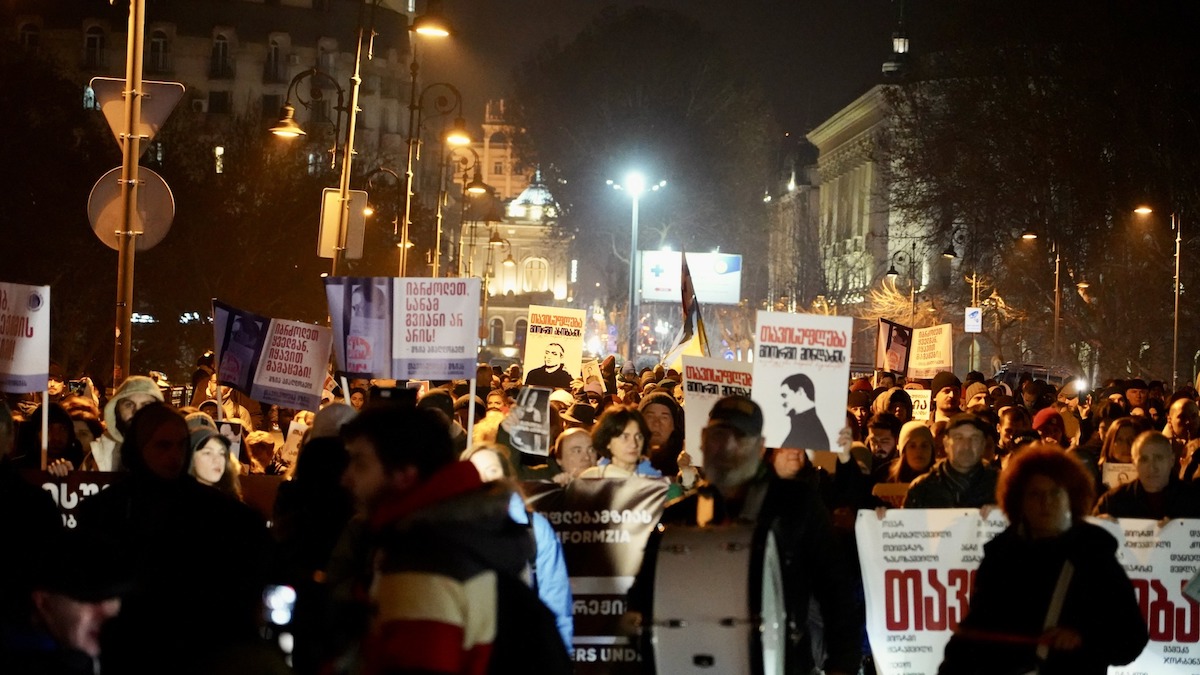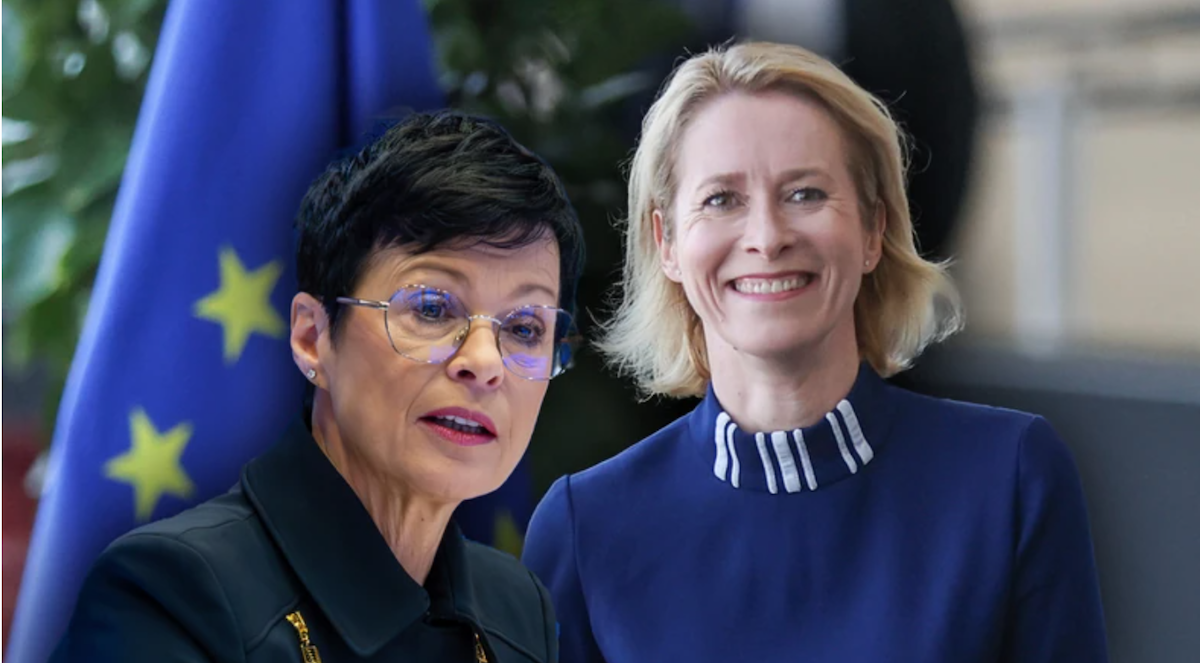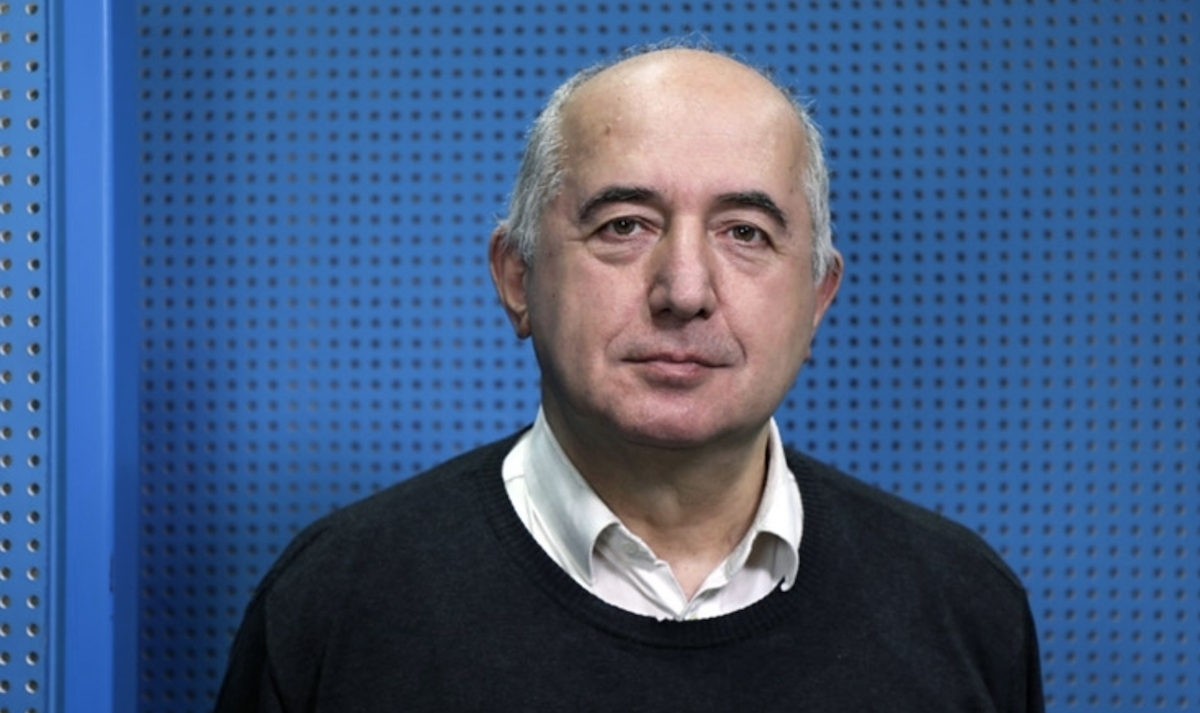Human Rights Watch: Georgian Dream fuels human rights crisis and demonizes opposition
Human Rights Watch on Georgian Dream
“Georgian Dream is trying to provoke a human rights crisis in Georgia. We see attempts to demonize the opposition, newly adopted repressive laws, and physical violence—these are the pillars of autocracy,” said Rachel Denber, deputy director of Human Rights Watch’s Europe and Central Asia program, in an interview with Voice of America.
According to her, recent amendments to the Administrative Offenses Code are “indiscriminate and arbitrary,” signaling an effort by Georgian Dream to suppress opposition and critics of the regime.
Denber stated that Human Rights Watch has documented cases of police violence against protesters and has reason to believe these attacks were coordinated.
Commenting on the hunger strike of detained journalist Mzia Amaglobeli, Denber noted that the Georgian Dream government has made it clear that it does not want to listen to protesters.
Rachel Denber’s comments
● “We try not to compare Georgia with Belarus or Russia, and we shouldn’t. We rely on numbers, and numbers are quite objective. It’s important to remember that Georgia, having inherited the Soviet Administrative Offenses Code, once reduced the maximum detention period for administrative offenses.
This was a very wise decision by the government at the time, as detainees’ rights are significantly restricted during arrest. That’s why it is telling that Georgian Dream has now increased the maximum administrative detention period to 60 days. This is part of a broader narrative in which Georgian Dream is deliberately provoking a human rights crisis in the country.”
● “If I’m not mistaken, under the new amendments, Georgia now allows so-called preventive detention, meaning people can be arrested without any cause. You may believe you are lawfully protesting against government actions, but it can arbitrarily arrest you for doing so. Why are they doing this? As I said, to drive the country into a human rights crisis.”
● “The ‘Law on the Transparency of Foreign Influence,’ adopted in spring 2024, is clearly aimed at suppressing the opposition, silencing regime critics, and dismantling active NGOs.”
● “We have documented cases of police violence against protesters, as well as against civilians and political activists. We began recording this in early spring 2024, when protests against the foreign agents law first started. Brutal attacks on demonstrators happened not only at rallies but also when they were standing in front of their homes or simply walking down the street.”
● “The nature of these attacks makes it clear they were coordinated. It is also evident that law enforcement officers were not acting on their own but following orders from above. We have documented all such cases of violence, but when we asked the Georgian prosecutor’s office what steps it was taking to investigate police brutality, we received an unsatisfactory response.”
● “We also recorded brutal attacks by special forces on people who were simply standing on the street. There is absolutely nothing that could justify such violence. Nor is there any justification for police dragging people behind their lines to beat them mercilessly, even when they were already on the ground. The sole purpose of such actions is punishment, revenge, and intimidation.”
● “Hunger strikes are a legitimate form of protest, and Mzia Amaglobeli has every right to express her dissent this way. If someone chooses to protest in this manner, the government should not interfere.”
● “I believe the Georgian Dream government has made it very clear that it does not want to listen to protesters. It has already decided which path it wants to take the country on. It distorts reality and crushes the hopes of the overwhelming majority of Georgians who aspire to a European future.”
What does the European Commission say about Georgian Dream’s policies?
On February 7, European Commission Vice President Kaja Kallas and Enlargement Commissioner Márta Kos issued a joint statement on the situation in Georgia, emphasizing that Georgian Dream’s policies are marked by violence against all dissenters.
They cited the case of arrested journalist Mzia Amaglobeli as a striking example of how the Georgian Dream regime treats journalists and anyone who freely and openly expresses their opinions.
News in Georgia





















